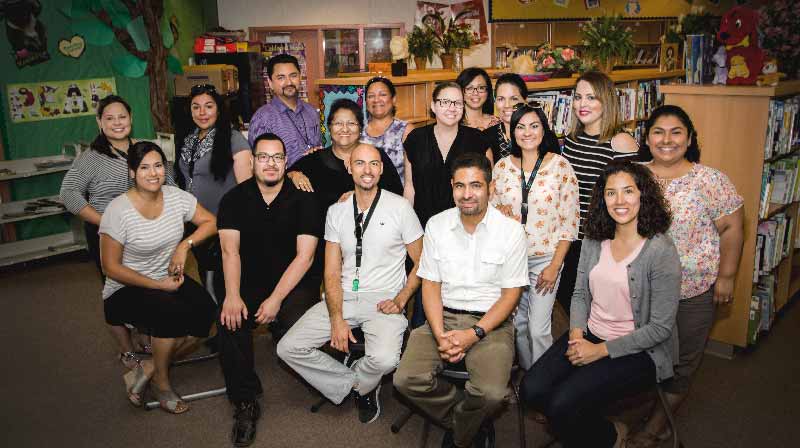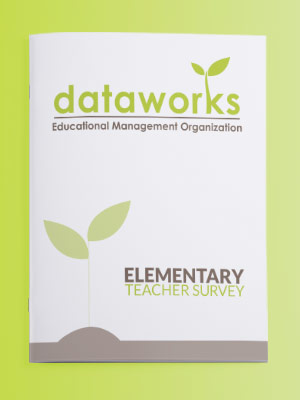
The Educational Management Objective
Establish successful Administrator-to-Teacher relationships, Teacher-to-Teacher relationships, and an ongoing local training program to create a school or districtwide culture of instructional excellence.
The Educational Management Vision
All students, regardless of race or socioeconomic status, can succeed if they have access to a great education.
By diagnosing and solving complex issues in the educational process, learning can be visible in the classroom.
Research-based solutions, implemented consistently have been proven to have the greatest impact on student achievement.
Hattie Ranking
In 2009, 2011, and 2015, researcher John Hattie measured the effect size of a list of 195 actions related to student achievement. To view, the complete list click here
Accelerated Reform Model
Dataworks has developed an Accelerated Reform Model focused on specific areas where student achievement can be most influenced, as shown by the Hattie research.
Teacher estimates of achievement
(1.62)
What would improve teacher’s expectations of students?
Teachers will increase estimates of achievement when a) students are more engaged and have less behavioral issues, b) when teachers are confident that the curriculum is aligned to grade-level standards, c) when students regularly demonstrate understanding the first time something is taught.
Collective teacher efficacy
(1.57)
What would improve teacher efficacy?
Teacher efficacy will increase when a) students are more engaged with the content being taught, b) when teachers understand the components needed in a well-designed lesson, c) when curriculum is aligned to grade-level standards and assessment rigor, d) when teachers receive consistent support and feedback from administrators and coaches.
Self-reported grades
(1.33)
What would improve self-reported grades?
Self-reported grades will be more on target when students have confidence in their ability to answer higher-order CFU questions posed by the teacher.
Conceptual change programs
(1.16)
How do you change misconceptions students enter your classroom with?
Identifying student misconceptions and providing a conceptual change in thinking requires accurate diagnosis by the teacher and the ability to provide new, accurate concepts for the students. The correction of misconceptions will lead to improved student achievement.
Teacher credibility
(0.90)
What would improve teacher credibility?
Teacher credibility will increase when teachers gain the trust of students and demonstrate competence to students.
Micro-teaching
(0.88)
How would watching yourself teach change your instructional strategies?
Micro-teaching will improve teacher awareness of the implementation of teaching strategies in their classroom. Being able to observe one’s self in a video-recording and then receiving feedback from peers will help teachers gain greater perspective on their own teaching style. Additionally, observing other teachers will help them pick up new styles and techniques.
Teacher clarity
(0.75)
Do your lessons have precise organization, explanations, examples, and guided practice?
Teacher clarity in a lesson design and delivery will increase teacher preparedness, improve teacher content knowledge, increase teacher awareness of common misconceptions, and equip the teacher with the tools needed to be considered an effective and trustworthy teacher.
Feedback
(0.73)
Do students have the opportunity to give feedback to you as a teacher?
Feedback is most useful when it comes from student to teacher. By allowing students to explain how or why they have arrived at an incorrect answer, the teacher is able to comprehend where things went wrong. Feedback in the classroom will increase the teacher’s understanding of student success or failure.
Providing formative evaluation
(0.70)
How do you assess learning during the learning process?
Providing formative evaluations will increase teacher awareness of student understanding during the learning process. Checking for Understanding questions will be posed throughout the lesson to check for conceptual and procedural understanding of new concepts and skills.
How do you keep parents informed and motivate them to become more involved in their child’s education?
Pupils and schools thrive when parents become involved in their child’s education. Schools and parents must see themselves as partners on a journey of academic excellence.
Research in Action: A 5-Year Plan
As an Educational Management Organization, Dataworks understands that real reform takes time to implement. So, we have developed a multiyear plan that can be implemented incrementally over a period of time.
1st Step by an Educational Management Organization: Diagnosis
Year 0 involves site visits and observations.
In the months leading up to the 5-year plan, Dataworks would conduct extensive site visits to observe teacher and administrator procedures.
Dataworks would collect classroom resources including textbooks, supplemental materials, and a week’s worth of student work from each teacher for analysis. Dataworks would use our patented Classroom Productivity Index to objectively collect other qualitative and quantitative data that is representative of the current climate of the school site.
2nd Step of an Educational Management Organization: Ongoing Assessment and Review
Data Collection: A study of the local variables.
DataWORKS will use biannual surveys to collect qualitative and quantitative data to research the variables affecting the local campus.
Surveys will be given to students, teachers, administrators, and parents.
Significant findings of the surveys will be published for the community. Action plans and/or enhancements to the 5-year plan will be made annually according to the results.
Have Any Questions?
Fill out the form with your school email address, and we will get back to you.
We will reach out to schedule a meeting with you.
Alternatively, you can book a phone or Zoom appointment directly by following this link: https://dataworks-ed.com/book-appointment/
Frequently Asked Questions
Five years is just an example. Any range of time can be developed for your project. It depends on your needs and the amount of time it takes to achieve maximum implementation.
Yes, we prefer to customize our Educational Management/Professional development program for each school or district. Some districts focus on professional development workshops and instructional leadership; others add curriculum services or data/assessment modules.
The cost varies depending on the services selected and the size of your district or school. Contact us, and we’ll discuss the possibilities.
Yes, we are using research-based strategies that have been proven to work with all sorts of districts and groups of students.
Yes, we would be glad to provide an Introduction to all of our services available in our E.M.O. program. This can be done on site or, depending on location, via webinar.





